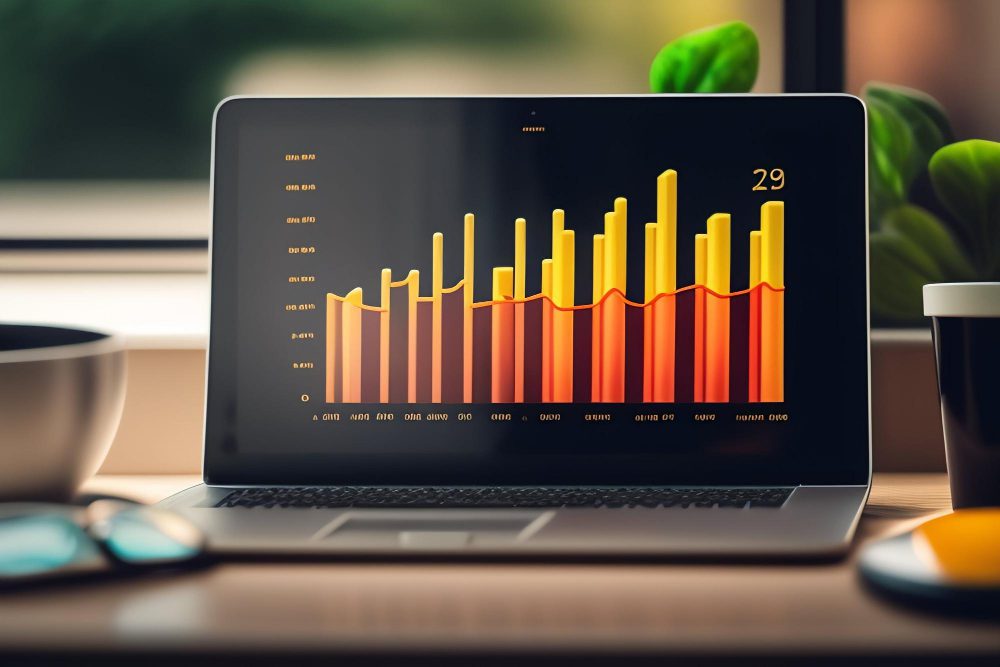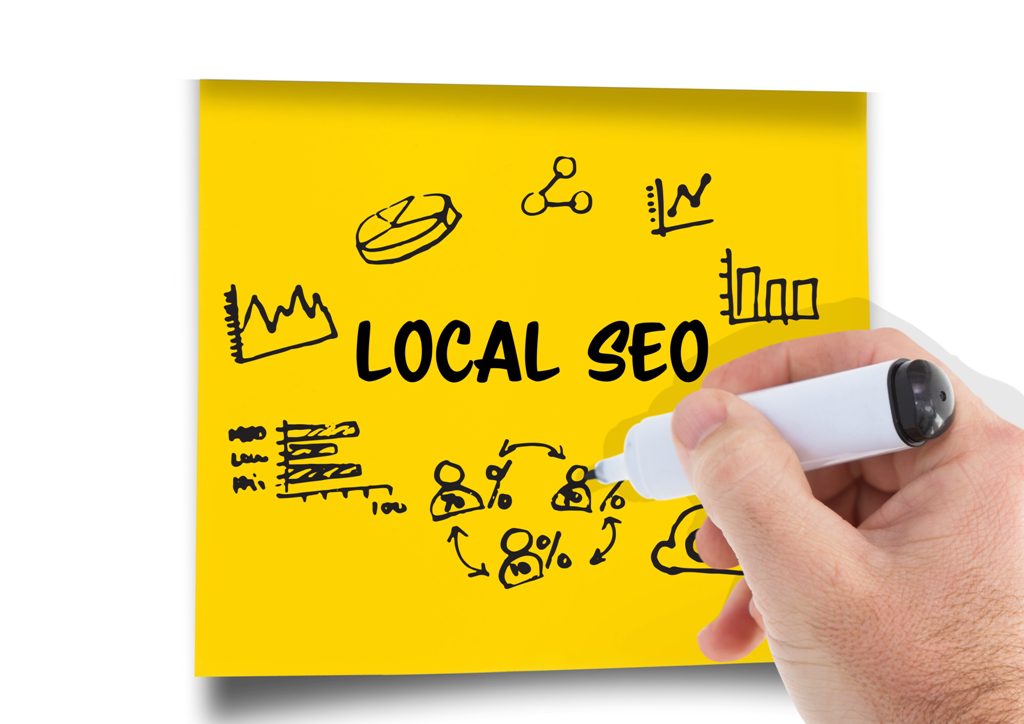The need for quality local SEO arises with the development of small and medium businesses in urban areas, requiring online representation for the local audience. Everyone now searches for the best products and services nearby and expects quick answers.
Will your business appear exactly when local customers are searching? Will they choose you among all the local firms offering the same products and services?
This article serves as a guide to local SEO, created to assist professionals in the field of local SEO and consumers in need of the service. This type of optimization requires a strategic and targeted approach that differs from general SEO.
Retailers aiming to outperform their competitors must ensure that all local signals in Google’s local search are consistent and accurate.
Guide to local SEO
What you need to know about local SEO?
- The best local ranking signals you should be aware of and why.
- Local SEO audit and what needs to be done.
- How to build a winning strategy for local SEO.
- Analysing competition in local search.
- Why and how general information and user experience impact local SEO.
- Where to find the best opportunities for building local links.
- Why reviews and star ratings matter and how to use them.
- How to fully optimise your listing on local search-supporting platforms.
- Attributes needed for an effective online advertisement.
All these topics will be covered in the text, and as users, you have the opportunity to read according to your current interests. First, however, the two most important questions and their answers.
What is local SEO?
Utilising local SEO to promote your business can be one of the most successful strategies overall. To grow your business locally, you need to ensure that your website appears in local searches for the relevant audience. Location-based targeting is used to determine the results of targeting.
Local SEO is a term used to denote SEO based on geographical location. These local SEO services are available for any business at the local level. Any local business selling goods and services can be considered a local business – whether it’s a doctor, lawyer, banker, tailor, plumber, etc.
Every time someone searches online for your product or service (let’s say, “good tailors in London” or “hairdresser in Manchester”), if your local SEO is done well, the website will be found in the search results, directly contributing to the development of your business.
Benefits of local SEO
Local searches are becoming increasingly important for Google and other search engines. Depending on the user’s IP address, Google can provide results that are suitable for a specific location. Local SEO for small businesses can work wonders, and at MOXX advertising, we are here to make it happen for you.
We will tailor and refine your Google search to a specific city or region, mentioning a specific location and telling us your intentions, the type of customers you are looking for, and what you want to achieve. Local SEO can provide numerous benefits for your business, and they include:
Online searches are popular for people to find better options
We live in the era of digital information. People can surf the internet from the comfort of their homes and find all kinds of information they need. When buying something locally, they prefer to conduct preliminary searches to find the best options in their area and city, rather than going directly to the market and searching.
High rankings in search results can make your business appear in front of more local customers. That’s why local SEO is crucial.

High conversion rates with local SEO
Local SEO provides better conversion rates by directing targeted traffic and increasing the conversion from potential customers to actual ones. The likelihood of converting potential customers into actual customers is higher for those users who search based on local content. The individual is often located in the vicinity of the business they are searching for, giving the business a greater chance to connect with them. On average, one out of every three potential customers may become a possible customer, representing a conversion rate of 33%.
This percentage even increases for restaurants, hotels, guesthouses, tourist attractions, and cultural sites. All of them require local SEO.
Branding your business with local SEO
Local SEO is most effective when targeting local customers, as it is geared towards people in proximity to your location. You can publish your prices and services on your website, and include images of your business along with the latest updates. This can give your business a greater sense of authenticity. You will be able to reach more customers and build a stronger brand that is recognised not only by those living nearby but also by visitors to the city.
Business expansion through local SEO
Consider your website as your virtual office, making it easier for users to interact with your business using local SEO. Customers can easily browse your services (or products), and you can ask for feedback.
Most users read reviews before making a purchase, and having a section for suggestions or ideas can help improve or expand your business.
Building long-term networks with local SEO
You can use local SEO if you are interested in finding niche merchants and marketers who sell products similar to yours. This facilitates the establishment of relationships between two different businesses. It is possible to initiate new business ideas with other website owners for future profits. That’s why local SEO plays an important role in building long-term networking connections.
Why do you need a digital agency for local SEO?
During the manual local SEO process, we at MOXX advertising will employ a variety of different strategies for local SEO. These strategies are based on knowledge and analysis that, as business owners, you cannot be expected to possess and delve into because by the time you start, you have already lost time to your competitors.
- We offer you an excellent plan that will quickly recoup the initial investment for local SEO. We will use all techniques that will bring your business to the forefront in local search engine results. We will tailor our approach based on whether you offer products, services, or information about your neighbourhood, city, or region.
- Local SEO provides an advantage over the competition by directing people to your business directly, right where your physical activity is located – whether it’s a small business, a shop, cosmetic services, hair styling, laundry, bar, restaurant, bakery, small hotel, guesthouse, mechanic, translation services, office, sports club, or fitness center.
Local SEO for small businesses
Small businesses are the heart of the middle class. They are a segment of the economy that requires attention and resources to thrive and provide all the necessary services in the modern urban environment.
At MOXX advertising, we have special packages for small businesses and their local SEO to develop their online presence at the local level. Here are the benefits of our services:
Increased local traffic
Local SEO can lead to an increase in website traffic, one of the main direct benefits. Business thrives thanks to traffic, and in local SEO, it’s not just any traffic. It’s targeted traffic from people reacting to the content of local SEO. You can see an increase in local traffic from potential customers by using local SEO and localised content and ads that connect with the local audience.
Higher conversion rates of potential users into customers
One of the main benefits of local SEO is a better conversion rate. People who have searched for your service online and have seen it have become your real customers. Even registration or subscribing to a newsletter can be considered a conversion. In simple terms, out of every 100 people who visit your store, maybe 60 will buy something from you.
High probability of ranking
Google personalises the search results page to best meet customer requests. As you try to rank for a specific target audience in your locality, you will have long-lasting ranking in SERPs. Being on the first page of search results is important as it increases trust and web traffic. When using local SEO, it builds authority and trust, thus increasing the likelihood of your website ranking on the first page of search results.

Local SEO and the connection with Google
The benefits of local SEO also include hyper-localisation. Google displays the best results when searching for local/small businesses. With the help of local SEO, you have the chance to be listed among the best businesses in your city. People usually check Google Maps to find businesses in their area. If you have improved visibility on Google, you’ll attract many customers with purchase intent, and advertising on the most popular search engine will redirect many customers to you. This way, you’ll further improve conversions and increase your revenue.
Better community building
The foundation of a community lies in similar connections and shared interests. Community is a crucial asset for any business. Local SEO can help you build a strong community while targeting potential customers. Building a community leads to a higher retention rate. This means that once you’ve built a community, you have immediate access to a pool of acquired customers, and retaining and launching new offers in the market becomes easier.
Overcome competition
When local SEO is done correctly, you can overcome the competition. Local SEO will help your small business outperform the competition, making you more competitive and visible to your target audience.
The best local signals for ranking
46% of all Google searches are local. If your local business doesn’t appear when someone searches for the products or services you offer in a specific location, it’s a significant missed opportunity. You’re losing profits to your competitors. Today, with increasing market competition and changing Google algorithms, local businesses have begun to understand the benefits of the best local SEO services.
Before launching a successful local SEO campaign, you need to gather signals for your business at the local level. These signals come from customer reviews. You can collect them if your business has an account on Google My Business. It’s also good to have a feature on your website for customers to leave reviews. You can gather these locally through regular conversations with people who have used your product or by researching opinions in the local community. Google advertising also helps immensely.

Conducting an SEO audit for local optimisation
Once you’ve gathered enough information based on signals from customers, you might think you’ve done your job and can focus solely on keyword rankings. However, SEO is a continuous and intuitive process.
Instead of stopping here or just making changes and seeing what sticks, it’s useful to conduct a comprehensive audit to see where your website stands and what you need to work on to achieve your goals. A local SEO audit may include the following:
- Review of available information: Start by reviewing all data related to local optimisation, including address, phone number, business hours, and information about your business on the website.
- Research on local search keywords: Use keyword tools to discover relevant keywords for local search related to your niche and geographic area.
- Competitive analysis: Study your competition in local search by analysing their websites, keywords, ratings, and reviews. Identify their strengths and weaknesses and try to use them to improve your strategy.
- Evaluation of local listings and directories: Check if your business is listed in relevant local listings, directories, and catalogues. Update and optimise your listings with current information.
- Website and technical analysis: Review your website for local optimisation, including page titles, meta descriptions, URLs, content, and internal linking structure. Ensure that your website is optimised for local search.
- Analysis of local reviews: Examine online reviews for your business and respond to them. Actively work to get positive reviews and manage negative ones.
- Social media and local signals: Assess your presence on social media and optimise it for local search. Examine your business’s identification in the local context, including the number of local fans, ratings, and reviews.
- Mobile optimisation: Ensure that your website is optimised for mobile devices, as local search is often performed through mobile devices.
- After completing the local SEO audit, you’ll be able to identify weaknesses and develop an appropriate strategy to improve the local optimisation of your website. It’s most effective to have all these steps performed by a digital marketing firm.
Building a winning local SEO strategy
Creating a successful local SEO strategy is a step-by-step process. The most crucial step before the technical work on the website itself is developing a winning strategy. It should follow the gathered initial information and the website audit or your current online situation. To build a winning strategy for local SEO, it’s important to take the following steps:
- Identify and tailor your messages to your target audience: Understand who your target market is and what their needs and preferences are. This allows you to create content and keywords that are tailored to the local audience.
- Local search keywords: Research and identify relevant local search keywords related to your business and location. Include these keywords in your content, meta tags, page titles, and URLs.
- Optimise local information: Ensure that your local information (address, phone number, business hours) is clear and up-to-date on your website and in local business directories like Google My Business.
- Include local key phrases in your content: Create specific pages for each location you serve and include local key phrases in your content. For example, if you’re a restaurant in London, create a page optimised for “restaurant London.”
- Encourage customer reviews: Prompt your customers to leave reviews for your business on local directories like Google My Business. Positive reviews and high ratings can improve your visibility and trust.
- Consider building links with local websites: This may involve partnerships, sponsored events, or involvement in local communities. Building relationships with local websites, blogs, and media can enhance your local presence.
- Ensure your website is fully mobile-optimised: As a significant number of local searches are performed on mobile devices, make sure your website is optimised for mobile search.
Optimising for Google My Business
Google’s platform has become the most popular local search service. Since Google supports, verifies, and generously shares its own content, Google My Business is the ideal tool to help your business meet Google’s needs.
To ensure you’re optimized for Google My Business, you should:
- Create and maintain a Google My Business page.
- Use Google posts within your profile.
- Encourage your customers to share reviews online.
- Authentically respond to reviews, indicating location. For example:
“We appreciate your reviews for [product/service] in [city, state]. Your feedback is valued, and we look forward to serving you again. Thank you from the [full company name] team.“
When Google confirms that your business is authentic, the search engine may potentially reward your business with a coveted spot in the local Google search sidebar.
Don’t do this solely for SEO. By having reviews and maintaining up-to-date contact and business hours information, you enhance the experience of potential customers trying to find you. Access to accurate information is crucial for consumers, now more than ever due to the disruptions in consumer behaviour and business operations in 2020.
User experience for attracting local customers
User experience is crucial for local SEO. Here are several aspects to consider in order to enhance the user experience for your visitors:
- Ensure that your local information is clear, up-to-date, and easily accessible to users. This includes your address, phone number, business hours, and directions to your business.
- Users have limited patience, especially during mobile searches. Ensure that your website is optimised for fast loading to provide a smooth and quick experience.
- With the rise of mobile searches, it’s crucial for your web presence to be fully adapted for mobile devices. Make sure your website is responsive and easily navigable on small screens.
- Provide easy and intuitive navigation on your website to help users find what they’re looking for. Use clear menus, internal links, and content categorisation.
- Offer helpful and relevant content that addresses the needs and interests of the local audience. Content should be well-structured, easily understandable, and optimized with local search keywords.
- Use attractive and high-quality visual elements such as images and videos to enhance the user experience. Include pictures of your business, products, or services, and tell local stories with your products and services.

Tools for local community engagement
For effective advertising in the local online environment, the following attributes are essential:
- Clear and specific location information: Ensure that your ad contains clear and accurate information about your business location. Include the address, phone number, and an interactive map to help users easily find you.
- Ratings and reviews: Including positive reviews and high ratings in your ad can boost consumer trust and persuade them to choose your business. Actively encourage customers to leave reviews and ratings to be included in your ad.
- Unique selling points: Choose a few unique selling points that set your ad apart from the competition. This can include special promotions, free services, or unique products you offer.
- Local search keywords: Research and identify local search keywords related to your business and include them in your ad copy to make it more visible to users searching for your type of services or products.
Attractive design and visual elements: Utilise high-quality visual elements, such as images of your business, products, or services, to capture the attention of consumers. Pay attention to the design of your advertisement by using appealing colours, fonts, and easily readable formatting.
Clear benefits and offerings: Emphasise the key benefits and offerings that you provide to your customers. Highlight unique features of your products and the quality of your services.
Technical SEO and tools for local optimisation
Technical SEO and the tools used play a crucial role in local optimization. They represent the most complex aspect of local SEO and are therefore in the hands of specialists who work with the overall database of your business and the technical requirements for quality optimisation. These include:
- Website optimisation – having a mobile-friendly site; optimising website loading speed by minimising file sizes and using caching; using the correct URL structure with keywords related to your location. Incorporating local keywords into page titles, meta descriptions, and header tags.
- Local listings and directories – registering and maintaining up-to-date profiles in local listings and directories such as Google My Business, Bing Places for Business, Yelp, and others. Shaping information about your business in these directories as complete, accurate, and current. Using tools to manage and synchronise your information across various local listings and directories.
- Geographical targeting and markup – using geographically targeted keywords in your content, page titles, and meta descriptions. Integrating microformats for marking your business location to help search engines understand information about your location.
- Local structured data schemas – using tools to structure data for local businesses to provide search engines with clear and detailed information about your business, including address, business hours, phone number, ratings, and reviews.



